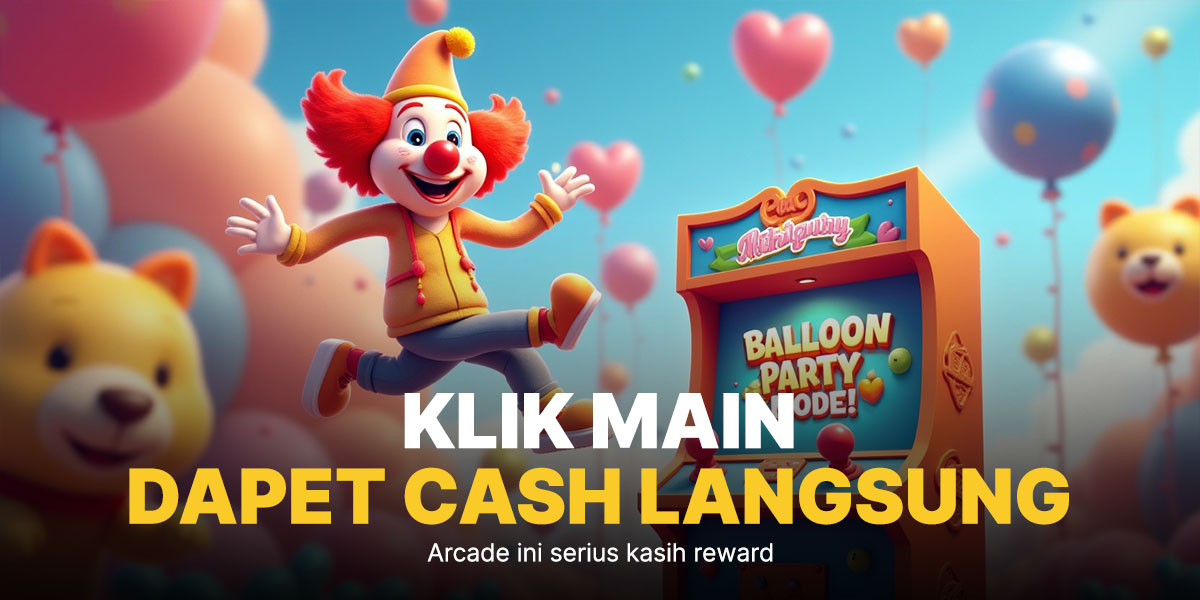Super Slots Pragmatic Play: Sensasi Slot 5 Reel Penuh Warna
Nikmati keasyikan main Super Slots dari Pragmatic Play, slot 5 reel dengan grafis warna-warni dan fitur lengkap. Panduan lengkap cara main dan trik menang.
Spadegaming Arcade: Sensasi Game Arcade Penuh Warna
Jelajahi dunia Spadegaming Arcade, game arcade penuh warna dengan gameplay seru dan fitur menarik. Temukan keseruan dan kemenangan besar di sini!
Maksimalkan Sensasi Bermain dengan Slot Aztec Gems dari Pragmatic Play
Rasakan pengalaman baru dengan Aztec Gems, game slot dari Pragmatic Play yang menawarkan sensasi bermain penuh warna dan peluang menang besar.
Pragmatic Play Slot: Keunggulan dan Cara Menang Mudah
Mengenal lebih dalam permainan slot dari Pragmatic Play, keunggulan fitur dan cara mudah untuk menang dalam game slot yang sedang populer ini.
Terungkap! Keunikan Slot Aztec Gems dari Pragmatic Play
Mengenal keunikan dan keunggulan slot Aztec Gems dari Pragmatic Play, sebuah game slot dengan tema peradaban Aztec yang memukau dan kaya fitur menarik.
Menantang Keberuntungan dengan Game Arcade CQ9 yang Seru dan Menghibur
Rasakan sensasi bermain game arcade dari CQ9 yang penuh tantangan dan keseruan. Pelajari fitur unggulan dan tips menang dalam artikel SEO-friendly ini.
Evolution Gaming: Raja Live Casino di Dunia Casino Online
Mengenal keunggulan Evolution Gaming sebagai penyedia live casino terbaik, menawarkan pengalaman bermain casino online yang autentik dan menguntungkan.
Raih Jackpot Besar di Game Slot Wild West Gold dari Pragmatic Play
Wild West Gold dari Pragmatic Play menawarkan keseruan game slot dengan tema koboi yang autentik dan peluang jackpot besar. Pelajari tips dan fitur menarik dalam game ini!
Sensasi Unik Arcade CQ9: Seru dan Mengasyikkan di Setiap Level
Menjelajahi dunia arcade dengan game CQ9 arcade yang menawarkan sensasi unik, gameplay seru, dan tantangan di setiap level untuk pengalaman bermain yang mengasyikkan.
Mengenal SV388: Provider Sabung Ayam Online Terpercaya dengan Odds Terbaik
SV388 adalah salah satu provider sabung ayam online paling populer dengan reputasi terpercaya dan odds terbaik. Kenali lebih dalam tentang SV388 dan bagaimana ia menghadirkan pengalaman sabung ayam yang menarik dan fair.
 Super Slots Pragmatic Play: Sensasi Slot 5 Reel Penuh Warna
Super Slots Pragmatic Play: Sensasi Slot 5 Reel Penuh Warna Spadegaming Arcade: Sensasi Game Arcade Penuh Warna
Spadegaming Arcade: Sensasi Game Arcade Penuh Warna Maksimalkan Sensasi Bermain dengan Slot Aztec Gems dari Pragmatic Play
Maksimalkan Sensasi Bermain dengan Slot Aztec Gems dari Pragmatic Play Pragmatic Play Slot: Keunggulan dan Cara Menang Mudah
Pragmatic Play Slot: Keunggulan dan Cara Menang Mudah Terungkap! Keunikan Slot Aztec Gems dari Pragmatic Play
Terungkap! Keunikan Slot Aztec Gems dari Pragmatic Play Menantang Keberuntungan dengan Game Arcade CQ9 yang Seru dan Menghibur
Menantang Keberuntungan dengan Game Arcade CQ9 yang Seru dan Menghibur Evolution Gaming: Raja Live Casino di Dunia Casino Online
Evolution Gaming: Raja Live Casino di Dunia Casino Online Raih Jackpot Besar di Game Slot Wild West Gold dari Pragmatic Play
Raih Jackpot Besar di Game Slot Wild West Gold dari Pragmatic Play Sensasi Unik Arcade CQ9: Seru dan Mengasyikkan di Setiap Level
Sensasi Unik Arcade CQ9: Seru dan Mengasyikkan di Setiap Level Mengenal SV388: Provider Sabung Ayam Online Terpercaya dengan Odds Terbaik
Mengenal SV388: Provider Sabung Ayam Online Terpercaya dengan Odds Terbaik
























































































